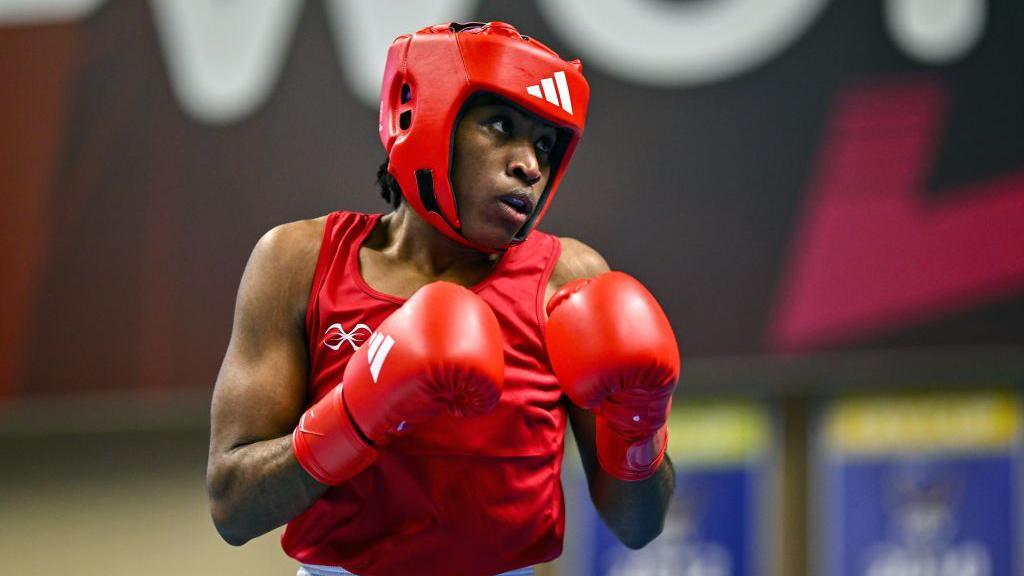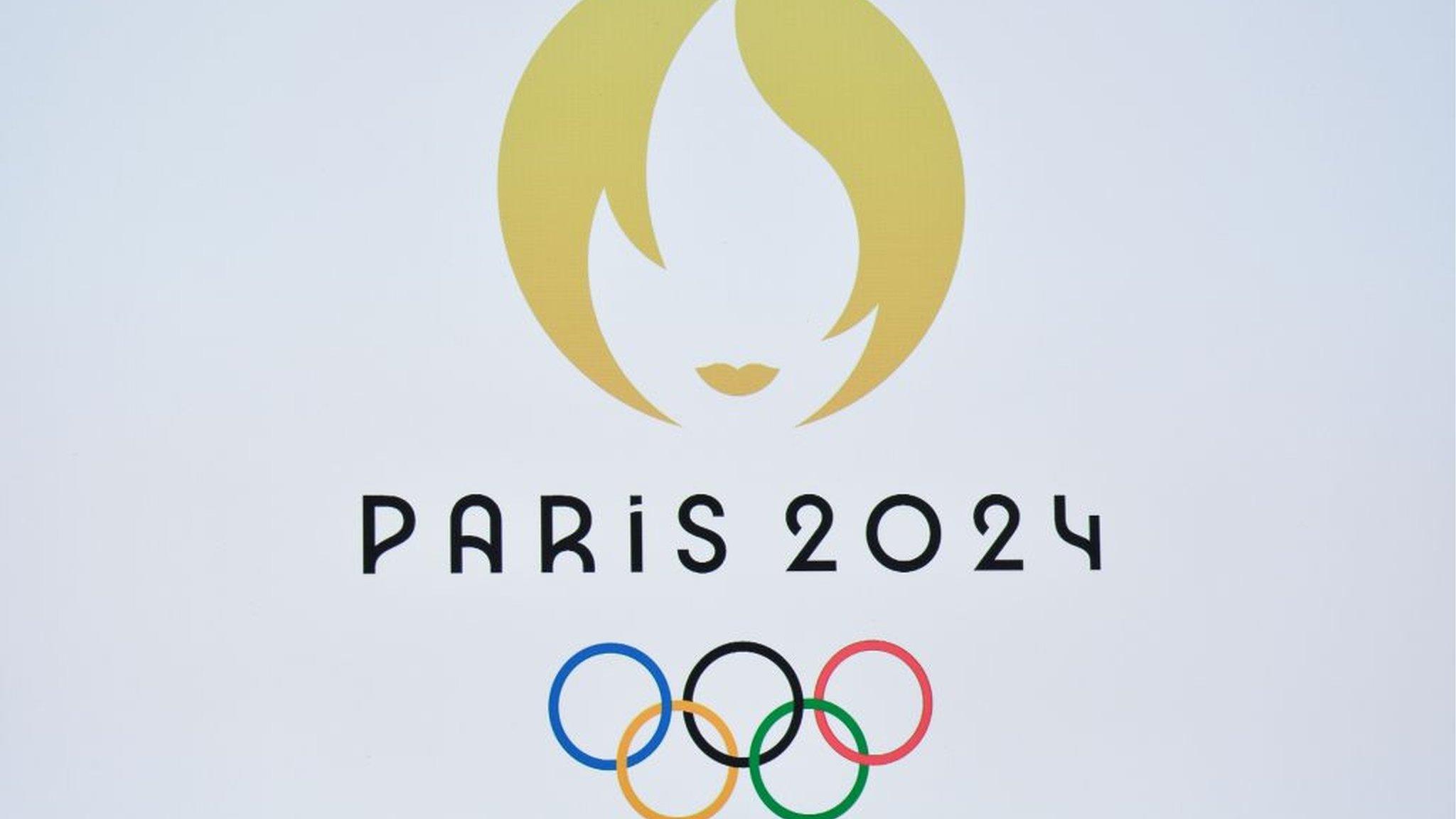GB-based boxer Ngamba named in Refugee Olympic Team

Cindy Ngamba started boxing in Bolton at the age of 15, having moved to the UK from Cameroon aged 10
- Published
British-based boxer Cindy Ngamba has been named in the Refugee Olympic Team for the Paris 2024 Games.
Cameroon-born Ngamba, 26, is the first boxer to be selected for the team.
Ngamba moved to the UK aged 10, but cannot compete for Team GB because she does not have a British passport.
"It means the world to me for qualify," she said.
"I have always worked hard, and we are going to go out there and do our job - we are like one family."
Ngamba is one of five British-based athletes selected, with Dorsa Yavarivafa competing in badminton and Matin Balsini selected for swimming.
Both were born in Iran, while Afghanistan-born Farzad Mansouri will compete in taekwondo and Ramiro Mora Romero, born in Cuba, is selected for weightlifting.
The Refugee team was announced by Thomas Bach, president of the International Olympic Committee (IOC) and the athletes found out while on the live stream.
Addressing refugees around the world, Bach said: "We welcome all of you with open arms.
"You are an enrichment to our Olympic community, and to our societies. With your participation in the Olympic Games, you will demonstrate the human potential of resilience and excellence.
"This will send a message of hope to the more than 100 million displaced people around the world."
A total of 36 athletes have been selected from 15 countries, and will compete in 12 different sports.
The team's Chef de Mission, Masomah Ali Zada, who competed for the Refugee Olympic Team at Tokyo 2020, added that the team "has a chance to inspire the next generation".
The IOC set up the Refugee Emergency Fund to help bring refugees into sport, before the team made its Olympic debut at Rio 2016.
IOC "disappointed" at third drugs suspension
The IOC also acknowledged its disappointment surrounding 1500m runner Anjelina Lohalith's recent provisional suspension for a positive drugs test.
Lohalith, who fled South Sudan as a child, tested positive for allegedly using the banned heart medication trimetazidine.
She was being funded by an IOC scholarship for her third summer Games.
"Of course we are disappointed," said James Macleod of the IOC.
"Any refugee athlete has the same rights and responsibilities as any athlete in the world and has to follow the rules.
"We have been working to make sure all of the athletes in the programme have had very good education around anti-doping matters but also are tested on a regular basis."
Macleod added that any athlete who tests positive will be removed from the scholarship programme.
In March, Dominic Lokolong Atiol - also a 1500m runner originally from South Sudan - was provisionally suspended for allegedly taking the same substance.
And in December, 3,000m steeplechase runner Fouad Idbafdil, who was born in Morocco, was given a three-year ban after testing positive for endurance-boosting hormone EPO.
Related topics
- Published17 April 2024
